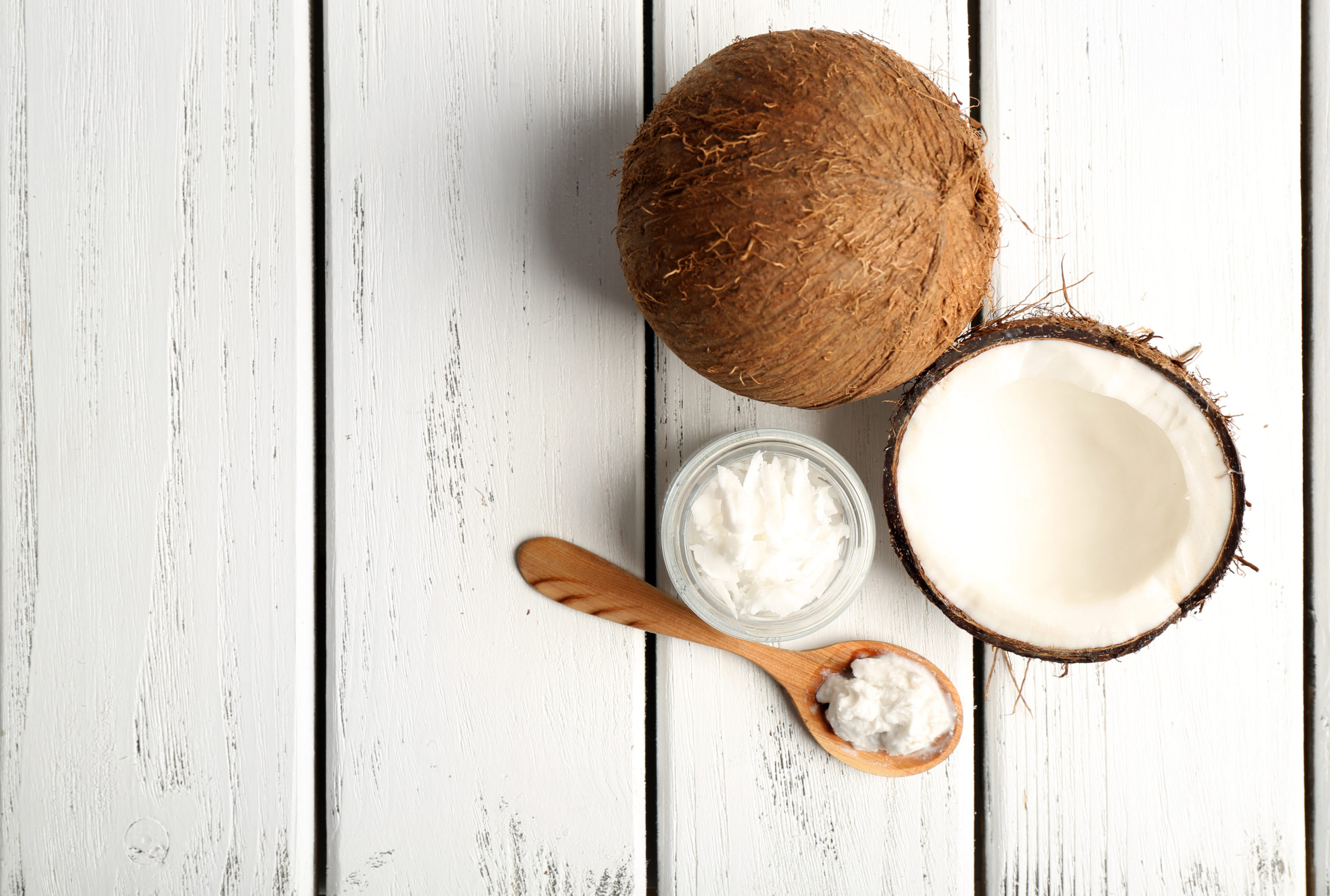Coconut Oil is a natural antibacterial, anti-fungal, antiviral and anti-parasitic. Coconut oil, or copra oil, is an edible oil extracted from the kernel or “meat” of mature coconuts harvested from the coconut palm.
When we consume coconut oil, our bodies break the oil down into its individual components of Medium Chain Triglycerides (MCTs) or Medium Chain Fatty Acids (MCFAs). These individual components are what make coconut oil unique.
Below are the 4 types of Fatty Acids that make up coconut oil:
- 48% Lauric Acid, which is a 12-chain saturated fatty acid
- 7% Capric Acid, which is a 10-chain saturated fatty acid
- 8% Caprylic Acid, which is an 8-chain fatty acid
- 5% Caproic Acid, which is a 6-chain fatty acid
So how do these fatty acids help and why do they matter?
Let’s take a quick step back. When we get sick with some bacterial infection, our Doctors have the ability to prescribe anti-biotics to help us fight that infection. Unfortunately, this is not the case with Viruses. Anti-biotics do not help us fight viruses.
Many Viruses and Bacteria are enveloped in a very flexible, lipid (fat) membrane. This allows these organisms to move, bend and flex freely and to squeeze into very tiny spaces.
Lipid-coated viruses and bacteria are easily killed by MCFAs. Compounds such as Lauric acid (C-12) (found most abundantly in nature in Coconut and Palm Kernel oils) have the ability to disrupt the viruses outer membrane and destroy them.
MCFAs are smaller than other fatty acids in the “skin” and have the ability to weaken the already very fluid membrane to a degree that it falls apart, and in turn destroying the virus. The best part is, these MCFAs will help destroy unwanted visitors without causing any harm to human tissues. WIN WIN!
Our recommendations for using Coconut oil? Keep plenty of Coconut oil on hand! When using it on your skin as a moisturizer, it makes your skin look and feel beautiful, but also provides a barrier of protection.
Coconut oil can also be ingested when feeling sick! If you’re feeling symptoms of an illness, take 2-3 tbsp of coconut oil mixed in luke warm water! (yes, I know that doesn’t sound tasty, but it will help) Your symptoms may naturally worsen over the short term (1-2 days) but will improve over the next few days as the MCFAs do their thing.
Some of you may be wondering, is MCT oil the same thing and have the same benefits? The answer is Yes and No. MCT oil is typically a combination of Capric (C-10) and Caprylic Acid (C-8). Both have anti-microbial properties, but not as impactful as Lauric Acid (C-12). Therefore, for maximum benefits use Coconut Oil when you can, but don’t avoid MCT oil, it will also have benefits (Brain, Immune etc.).
FYI consuming coconut oil is not going to prevent you from contracting COVID-19. This information is provided for informational purposes only and is not to replace any health recommendations from your Doctor or Health Canada.
If you currently do not consume Coconut oil on a regular basis, increasing its consumption may create a bit of stomach upset. As your body gets used to the Coconut oil, this feeling will go away.
In recent years the popularity of coconut and particularly coconut oil has soared because of publicized health benefits. Fueling the coconut oil trend, celebrity endorsements have claimed the ingredient to help blast away belly fat, curb appetite, strengthen the immune system, and even prevent heart disease!
As consumer demand for plant-based foods increases, coconut oil has become a popular fat choice for its rich flavor with a mild coconut aroma.
Remember to store coconut oil in a cool dark location in a sealed container or in the refrigerator. The shelf life will vary depending on the type of processing and how it is stored. Refined coconut oil generally lasts for a few months, whereas virgin coconut oil may last for 2-3 years if stored properly away from heat and light.


